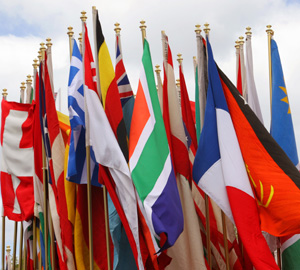"There are tremendous opportunities inherent in Indonesia's economic development in which Australian companies can play a role," Australian Ambassador to Indonesia, Greg Moriarty has told a CEDA audie

"There are tremendous opportunities inherent in Indonesia's economic development in which Australian companies can play a role," Australian Ambassador to Indonesia, Greg Moriarty has told a CEDA audience recently.
"In the services sector companies already in-country have described Indonesia as the market with endless opportunity," he said.
However, the bilateral business relationship is yet to reach its full potential, he said.
"Overall Indonesia is still only our thirteenth largest merchandise trading partner and investment levels are still relatively low," he said.
"As our Trade Minister Dr Emerson has said, we see no other region in the country where the gap between the actual level of economic cooperation and the potential for cooperation is greater."
Ambassador Moriarty said that while Indonesia has its challenges, it is an attractive place to do business, highlighting:
- 5-6 per cent annual growth, with 6.5 per cent growth last year;
- Dropping GDP to debt ratio;
- Only south east Asian country in the GE20;
- A rapidly growing middle class and a consumption driven economy;
- Ranks third in the south east Asian Stock Exchange, and its value has doubled since 2008;
- Sovereign credit rating of Investment Grade from two of the three global rating agencies; and
- FDI has increased 20 per cent since 2010.
Australian investment in Indonesia has increased by 11 per cent last year to $5.3 billion and two way trade by 14 per cent to $13.8 billion, he said.
The major challenge in Indonesia, but not unique in the area, is regulatory uncertainty, he said.
"It is a problem which has been increasing in recent months and I fear we are unlikley to see any significant improvement ... at least until after the 2014 election," he said.
He mentioned other risks and challenges which include:
- Infrastructure weaknesses that are unlikley to be resolved anytime soon;
- Very high costs of transporting goods within the country;
- Skilled labour shortages;
- Increasing levels of protectionism in some sectors; and
- Endemic corruption - that the Indonesian Government wants to tackle, but will take time.
To ensure Australian companies maximise opportunities while eliminating risks, Ambassador Moriarty urged Australian companies to:
- Remain ethical and behave in Indonesia as they would in Australia; and
- Be patient and spend time choosing their local partners.
On protectionism he said, post-GFC Indonesia has an increased sentiment of economic nationlism.
"There are new policy proposals being discussed in the parliament and elsewhere which seek to protect domestic industy and manufacturers, and do favour domestic businesses over foreign companies.
"While these policies are not aimed at Australia, they do and will affect Australian interests, including in the food, trade, mining and banking sectors."
On the empowerment of women Ambassador Moriarty said: "Australian companies are quite innovative and I think we have got a good reputation for the empowerment of women in the Indonesian mining industry."